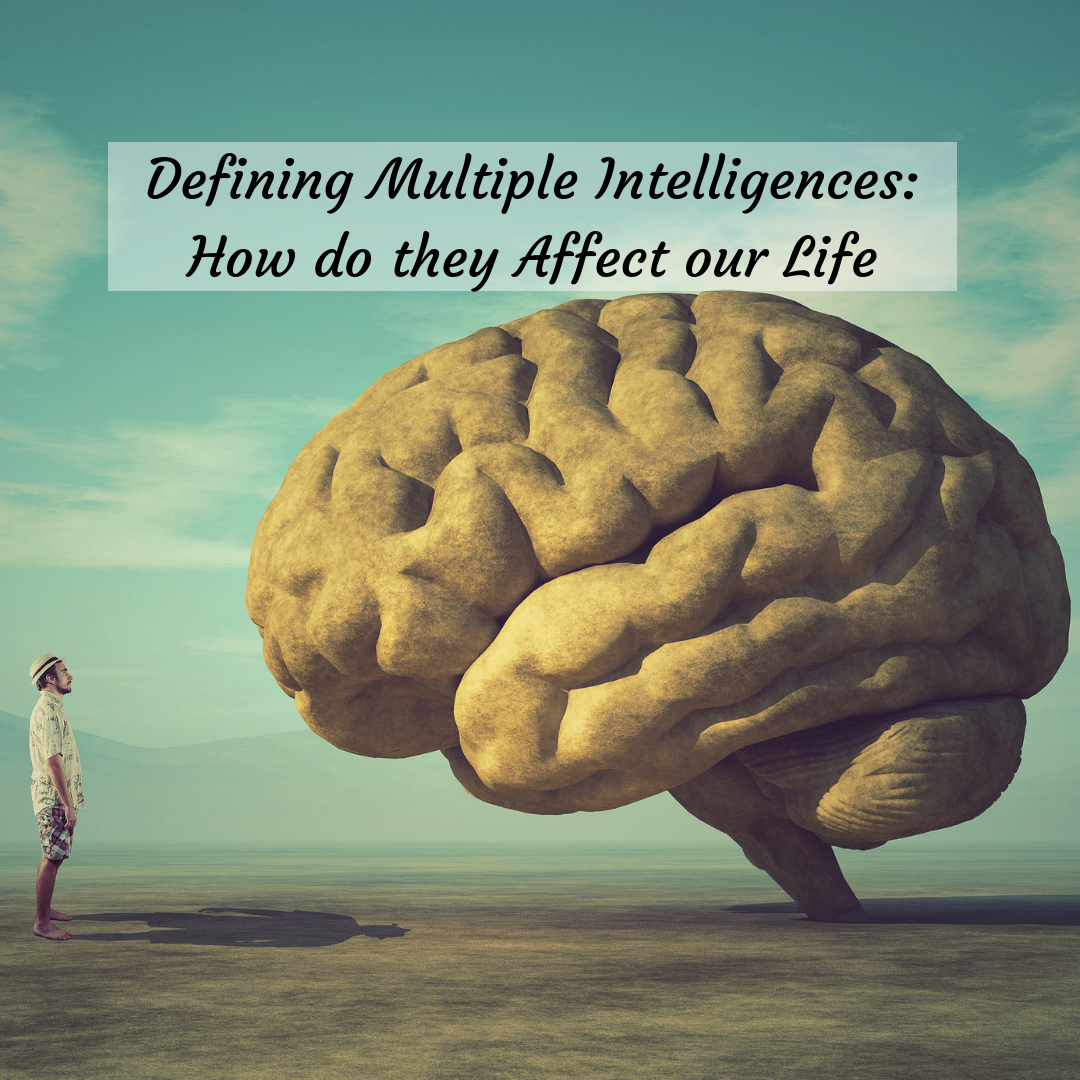Today I will cover a controversial and complicated topic, one that I have talked about with parents many times and that is Intelligence. Psychologists have been trying to define intelligence for many years, and we have progressed immensely! It is no longer thought, as previously thought, that intelligence depends on your gender, the color of skin or status (unbelievable right?!) also, now we know that we cannot rely on just traditional testes to identify an individual’s intelligence but on several types of tests. We have advanced a lot in this area and there is still a good amount of research going on. A big addition to the definition of intelligence is Emotional Intelligence and Multiple Intelligences which I will cover in this post.
Let’s back a little bit, the first measure of intelligence was proposed by Alfred Binet in 1905, he created the famous Binet-Simon scale to determine which kids would be able to keep up with school in a normal setting. Then, came David Wechsler who stressed the importance of taking into account other factors that can influence performance such as motivation, temperament, educational opportunities, and environment. He published the Wechsler Adult Intelligence Scale and also developed one for children, this test nowadays is commonly used for psychological testing.
It is important for us to understand that as a person grows there are several factors that can influence the development of certain skills, we have to take into account not only the individuals temperament or personality but also the environment where this person is being raised (If you where raised in the city you would grow up with a different set of skills than a person being raised in a farm.) According to research, changes in the environment can also lead to changes in the individual’s IQ.
Then, came Harvard psychologist Howard Gardner who proposed the importance of focusing on specific skills each person has to be able to handle their specific environment, he found the concept of intelligence useless if we don’t take into account these set of skills the person has.
Gardner’s Theory of Multiple Intelligences
Before, intelligence was seen as something we are born with, that can be measured and that hardly changes over the years. Nowadays, there is a different view of intelligence and one Psychologist that had a huge influence on this was Gardner. According to his theory, we have eight different types of intelligence and they all have a specific location in the brain and they each have a specific evolution. Although we all have these different types of intelligence, each person develops them in a particular way and to a different degree, product of their biology and environment in which they grow up.
Types of Intelligence
Musical Intelligence
High ability to perceive and express musicality and rhythm. You see this intelligence in musicians, performers, and composers.
Linguistic-Verbal Intelligence
Ability to use words effectively, orally or in writing. You see a high level of this intelligence in authors, poets, and speakers.
Bodily-Kinesthetic Intelligence
Ability to use the whole body in the expression of ideas and feelings, a great level of coordination, balance, flexibility, strength or speed. Here we see dancers, actors, athletes, surgeons, and artists.
Logical-Mathematical Intelligence
Ability to use and process numbers effectively, great at logical and abstract reasoning. Mathematicians, scientist, system analyst or engineers have a high degree of Logical-Mathematical Intelligence.
Visual-Spatial Intelligence
Ability to think in a dimensional level. These people are great at perceiving images internally and externally, transforming and modifying them. Here you see pilots, sculptors, architects among others.
Interpersonal Intelligence
These people have a high ability to understand and interact effectively with others, they have a high level of sensitivity to other people’s nonverbal communication (facial expressions, voice, gestures, posture…) and they know how to respond effectively. Psychologists, politicians, actors, or teachers have a high level of interpersonal intelligence.
Intrapersonal Intelligence
Ability to have self-awareness, great at analyzing theories and ideas, having self-discipline, and self-esteem. Psychologists, philosophers, and authors tend to have a high level of intrapersonal intelligence.
Naturalistic Intelligence
These people are great at analyzing and classifying environmental elements like animals, objects or plants. People who work in the field, botanists, hunters, landscapers have a high level of Naturalistic Intelligence.
Why is it so important to understand these theories? Because a child might be particularly skilled in one type of intelligence and have a wider range of abilities because of it, but not be so skilled in another type of intelligence and that is perfectly normal! this is crucial to understand not only for their self-esteem, but also to make their educational experience better for their specific type of intelligence by encouraging different learning opportunities. Understanding that an individual can be highly skilled in one area versus another will also make a huge impact when this child grows up and chooses his/her career.
It is crucial that we help our kids develop a good level of self-esteem, I can’t stress enough how important this is for their future personal and professional success. We must help our kids understand that it is OK not be amazing at something because for sure they are amazing at something else, which is why they should understand that they will have to work harder on certain areas versus other areas and they shouldn’t compare themselves with other people because they are amazing in their own unique way.

